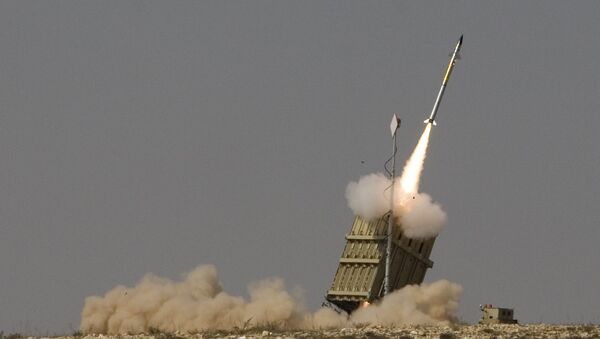The US Army expects to receive two Iron Dome anti-aircraft batteries in December and February for testing at the White Sands Missile Range in New Mexico, Air and Missile Defense Cross-Functional Team director Brig. Gen. Brian Gibson has confirmed.
According to the military, the Israeli-made air defence system will be put through its paces, including testing of a simulated interception of a mock cruise missile. If tests prove successful, the batteries will be deployed to Fort Bliss, Texas, and be made available for operational deployment into the ‘Army Integrated Air and Missile Defence’ concept next September and December, respectively.
Israel Missile Defence Organisation (IMDO), the system’s producers, received a contract from the US Army under the 2019 National Defence Authorization Act. However, earlier this year, Army Futures Command Gen. John ‘Mike’ Murray said Iron Dome could not be integrated into US air defences due to “interoperability challenges, some cyber challenges and some other challenges,” with the Israeli side reportedly refusing to give the US the source code for the defensive weapon. Last month, Murray indicated that the Army was “not interested in standalone systems”. The US scrapped the purchase of two additional batteries for $1 billion, settling for the two it has already purchased.
The Army plans to carry out a “shoot-off” in the next few years using both US and foreign air defence systems to determine which anti-air battery to buy in the coming years as part of the Pentagon’s initiative to acquire a new Integrated Battle Command System capability by 2023.
Iron Dome’s producers boast a 90 percent success rate of 2,000+ interceptions during nearly a decade of deployment, and Rafael rolled out a new, road mobile version of the platform, dubbed the ‘I-Dome’ –last year. The Iron Dome has proven successful in intercepting everything from make-shift rockets and small drones to BM-21 Grad rockets in deployments in northern and southern Israel against Lebanon’s Hezbollah and the Palestinian militant movement Hamas in Gaza. However, the system has also been criticised for its expense (a reported $20,000-$50,000 per Tamir interceptor missile compared to less than a thousand dollars for the rockets used by militant groups). Furthermore, the Iron Dome’s accuracy has been disputed in the wake of the 2012 ‘Operation Pillar of Defence’ in Gaza, where less than a third of the projectiles fired into Israel by Gaza militants were successfully intercepted by the system.



